People
Faculty

Gustavo Piga
Gustavo Piga, Ph. D. in Economics at Columbia University, is Full Professor of Economics at the University of Rome Tor Vergata, where he chairs the International Master in Public Procurement Management and the Bachelor degree in English in Global Governance. He has chaired the Italian Procurement Agency for Goods and Services, Consip Ltd., between 2002 and 2005. He is the author of the controversial 2001 report on Derivatives in Public Debt Management. He is the editor of several books, among which the Handbook of Procurement, Cambridge University Press, with Nicola Dimitri and Giancarlo Spagnolo and Revisiting Keynes - Economic Possibilities for our Grandchildren, MIT Press, with Lorenzo Pecchi. He is the author of the recent book “L’interregno” by Hoepli on the European crisis. He is also the co-editor of the European Journal of Public Procurement Markets and member of the Scientific Committee of the Italian Parliamentary Budget Office.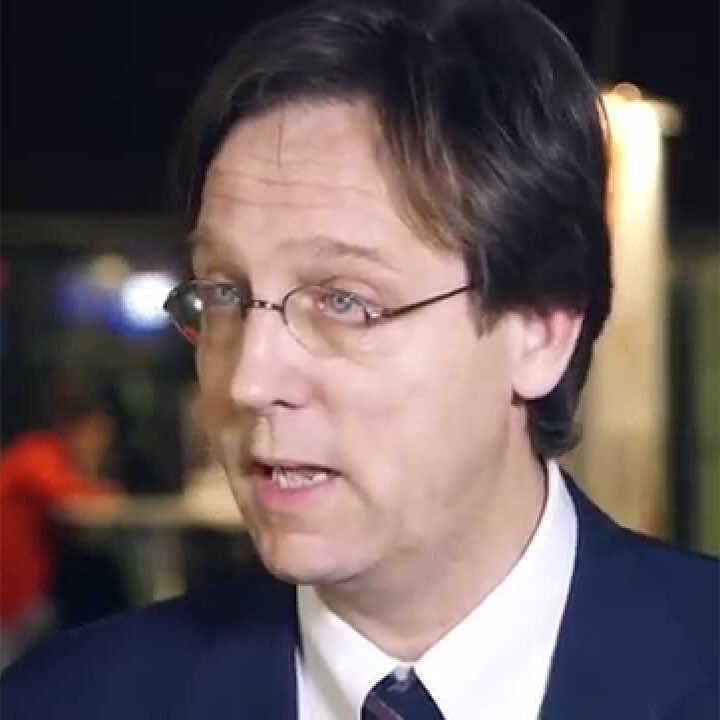
Simone Borra
Simone Borra is associate professor of Statistics in the Economics Department of University of Rome Tor Vergata. He teaches graduate courses in Business Statistics, Business Intelligence & Data Mining, and Statistical methods for management. Simone is the coordinator of a one year post graduate Master in Customer Experience, Statistics, Machine Learning & Artificial Intelligence with the partnership of SAS Institute and Accenture. His main research interests are in Statistical methods for Machine Learning and Nonparametric methods to measure prediction error.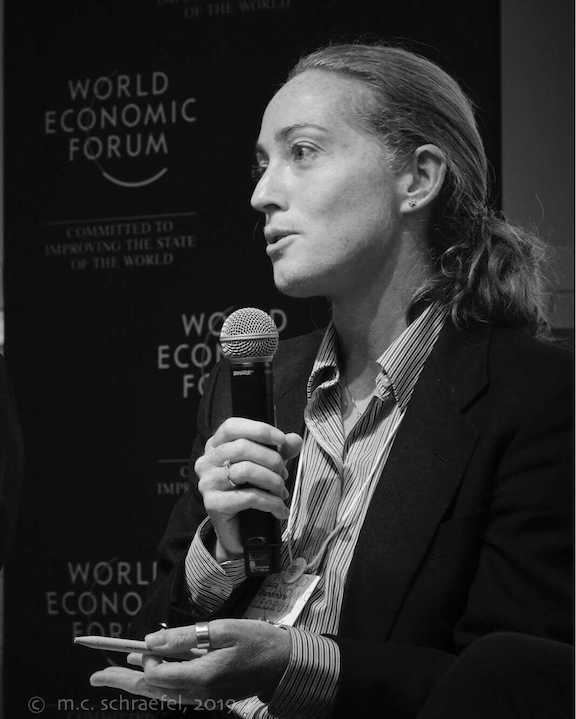
Laura Brandimarte
Laura Brandimarte is an Assistant Professor of Management Information Systems at the University of Arizona. She obtained her Master of Science in Economics at the London School of Economics and her PhD in Public Policy and Management, with a specialization in Behavioral Sciences, at Carnegie Mellon University, where she continued her academic career as a Post-doctoral Fellow. Her research and teaching interests focus on behavioral aspects of privacy and security decision making, privacy as self-determination, algorithmic bias, and disinformation. Her work was published in several leading academic journals, including Science, the Journal of Consumer Psychology, the Journal of Experimental Psychology - General, and the ACM Computing Surveys.Speakers

Caleb Ziems
I am a PhD student in the NLP Group at Stanford University, where I am fortunate to be advised by Prof. Diyi Yang. My work spans empirical Natural Language Processing and Computational Social Science. Previously, I finished my M.S. in Computer Science from Georgia Tech and my B.S. with a double major in Computer Science and Mathematics from Emory University. I was fortunate to spend some of my summers interning at Meta AI Applied Research and USC ISI. As of 2021, I am supported by the NSF GRFP.Teaching Assistants
Vlad Simon
Vlad is a Software Engineer working in Fintech. He is a Computer Science undergraduate at the University of Rome Tor Vergata.Participants

Adrianna Jezierska
My name is Adrianna, and I am in the first year of PhD at the University of Bristol, researching online climate-diet discourse of online vegan communities. I am particularly interested in exploring (i) how various actors create opinions on vegan and plant-based diets in the context of climate change and (ii) to what extent they influence their social networks. This project will use a mixed-method approach, including computational social science (NLP, topic modelling), network theory and qualitative interviews. Prior to joining the PhD programme, I earned an MRes in Sustainable Futures from the University of Bristol and a BSc in Marketing from the University of Southampton. I also have a wide-ranging experience in (sci)communications, working previously in public administration for sustainability and climate action, public policy and NGOs. Whilst not at my desk, I enjoy tennis, cooking, long walks in the forest and pilates.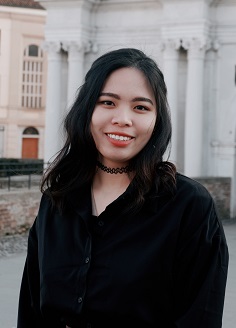
Anh Nguyen
T. N. Anh Nguyen is a PhD Candidate at the Human Rights Centre “Antonio Papisca” of the University of Padova, and an International Research Fellow at the Information Society Law Center at the University of Milan. She obtained her M.A. in Human Rights and Multi-level Governance at the University of Padova, with a specialisation in International Law and Women’s Rights. Her research interests focus on the legal aspects of the right to privacy and data protection, cyberviolence against women, and content moderation. Her doctoral study aims to investigate the governance of cyberviolence against women, including governance of (and by) internet intermediaries as hidden influentials in facilitating such violence on their platforms.
Beatrice Bonini
I am a PhD Candidate in Political Science at Columbia University in the City of New York, where I study public opinion and political economy. Prior to joining Columbia, I earned a B.S. and M.Sc. in Economics and Social Sciences from Bocconi University, where I focused on immigration, voting behavior and populism. I also gained experience in consultancy and in academic research centers in Italy and in the UK. I am currently working on my dissertation project on political communication on social media and (offline vs online) political participation of Millennials and the Gen Z. I am examining (i) whether, and in which ways, political content produced by non-political actors impacts younger generations, their preferences and behaviors and (ii) the trade-offs and incentives that these digital opinion leaders face when “going political”. I will employ different quantitative methods, from causal inference to experimental designs, to text and image analysis. I am also passionate about travelling and I am taking advantage of my time in NYC to travel more around Central America. I am also dedicated to yoga and meditation and eager to improving my surfing skills.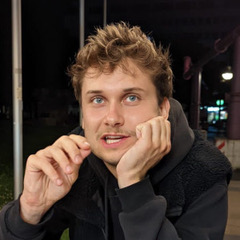
Christoph Sonntag
Christoph Sonntag is a Master's student in Computer Science at the University of Vienna, where he is conducting research on defense methods against backdoor attacks in distributed machine learning. His current work focuses on detecting malicious clients in a collaborative machine learning setting. He aims to identify poisonous model updates in which attackers manipulated training data to make a model behave in a specific way when it encounters a particular trigger. Previously, Christoph applied visual data analysis methods on data from CERN in an effort to make large deep learning models more interpretable. He holds a Bachelor's degree in Internet Computing from the University of Passau, Germany, where he also worked as a lecturer, teaching programming to non-computer science students. Christoph works part-time as a freelancer on contract-based web development projects, offering customer-tailored software engineering and development solutions since 9 years. Alongside his academic pursuits, Christoph engages in various creative projects, including making music, shooting on film, and editing the Wikipedia. He is also a French language learner, hobby chef and an avid explorer who enjoys discovering new things about the world.
Elena Bashkova
My name is Ellie and I am an MPhil student in Criminological Research at the University of Cambridge. For my master’s thesis, I am researching justifications that people give on online social media platforms and discussion forums for violence towards gender and sexual minorities. My other interests in criminology lie in global violence, international criminal law, and moral philosophy. After my MPhil, I would like to pursue a doctorate degree (please sponsor me). Prior criminology, I received a BA in Classics from University College London (UCL) in 2022. In my free time, I enjoy reading and cycling, and I am currently learning how to play on a guitar.
Genevieve Smith
Genevieve Smith is a DPhil candidate at Oxford University in the International Development department. Her research explores gender-related impacts and opportunities of artificial intelligence using machine learning (ML). In particular, she focuses on if/how ML-based alternative lending apps in India may reinforce gender inequity in low- and middle-income countries and methods to advance more feminist ML tools. Genevieve holds a Master’s in Development Practice from the University of California, Berkeley and works as the Associate Director at the Center for Equity, Gender & Leadership at UC Berkeley’s Haas School of Business. Here, she examines socio-technical questions of how bias in AI is perpetuated through organizational governance and team structures, as well as how to advance equity and inclusion within teams and technology products. She worked previously with UN Women, the UN Foundation, and the International Center for Research on Women exploring topics of women’s economic empowerment, inclusive technology, and digital inclusion. Genevieve is a Research Affiliate at the Minderoo Centre for Technology & Democracy at Cambridge University. Genevieve’s an avid adventurer and can be found skiing, kiteboarding, mountain biking, backpacking or otherwise exploring in her free time! She also loves football (soccer), dancing, and yoga.
Leah Rothschild
I have an academic background in Political Science, having studied Economics, Development and Governance at Leiden University, the Hague for my undergraduate degree and Politics and Government at St. John’s University, Rome for my masters. Since then, I have focused on honing my skills in the field of Data Science and Machine Learning by following a 12-week-full-time bootcamp with Le Wagon in autumn 2022 during which I learnt about different machine learning models and their applicability. I now work with Le Wagon as a teacher’s assistant and I am excited to participate in this year’s Summer Institute in Computational Sciences to discover how best to connect my two centers of interest in an effort to use Data Science as a tool for research in Social Sciences, in particular Political Analysis.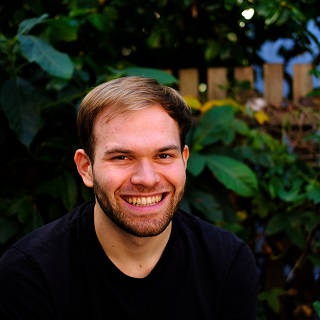
Lenard Strahringer
Lenard just finished his MSc in Sociology and Social Research at Utrecht University (Netherlands). In his research, he uses networked experiments and social network analysis to study how socio-psychological and sociological mechanisms bring about network dynamics that explain macro phenomena (such as polarization or social cohesion) in groups and markets. Most recently, he has studied the effects of reputation systems on social cohesion in economic interaction. In the fall, he will be starting his PhD in Organizational Behavior at the Stanford Graduate School of Business. Lenard also holds a BSc in Information Systems from the University of Munster (Germany).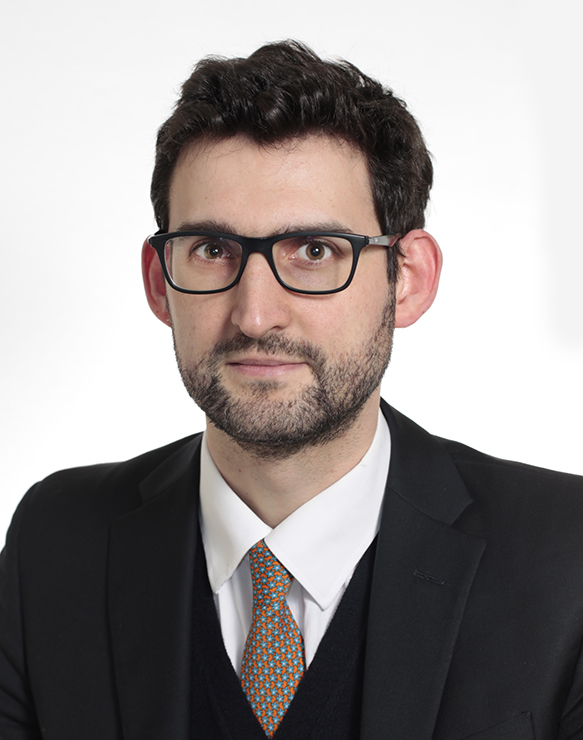
Marco Fontana
I am a Ph.D. student in legal sciences at the University of Pisa. My fields of research are administrative law, economic public law, and legal technology. My research project focuses on the use of law and technology instruments by public administrations. More in details, I study the possible use and legal issues of existing computational technologies, based mostly on machine learning algorithms, to help public officers in the interpretation of texts of law and the management of administrative procedures. I graduated in law at the University of Milan in 2012. In 2015, I was admitted to the Milan Bar Association and actively practiced law before starting my Ph.D. program, in 2021. I am also collaborating with the Polytechnic University of Milan in administrative, public procurement and data protection law courses. I am interested in learning and experimenting computational social science methods to be applied in the field of analysis of legal texts and legal documents.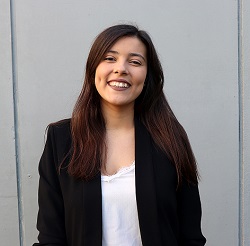
Marta Inácio
Marta Inacio is a Master's student in Human Rights and Democratization, currently enrolled in a joint program offered by the Global Campus of Human Rights and Adam Mickiewicz University. Her research primarily centers around human rights obligations in the development of migration management technologies under EU law. Marta's academic interests extend to neurorights and neuroscience, as well as predictive analytics and its implications, privacy, and labor rights. In addition to her pursuit of a Master's degree, Marta holds a Bachelor's degree in Marketing Management. She aspires to integrate these two fields and foster research in social impact and project management.
Muhammad Muhammad
I am a master’s student in political science at the University of Mannheim. I obtained my bachelor’s and master’s degrees in water and environmental engineering at Cairo University (Egypt), and then obtained my PhD in civil engineering with a focus on water resources at the University of Texas at Austin (USA). I eventually decided to direct and adapt the quantitative analytical skills obtained from my engineering studies to tackling political and societal problems, and I am currently employed as a research assistant at the Mannheim Center for European Social Research (MZES) as part of the PARFORM project (Partnership Formation in the Context of Recent Refugee Migration). In our research we investigate the question of whether the newly arrived refugee migrants in Germany would consider forming partnerships with the majority population? Or would they search for partners in their country of origin, or among the established ethnic minorities? How would members of the majority and from established immigrant groups perceive and react to partnership attempts of newcomers? Finally, when I am not spending time worrying about democratic backsliding or social cohesion in multi-ethnic liberal democracies, I like to read (especially the philosophy of Nietzsche), go cycling, and discover interesting restaurants!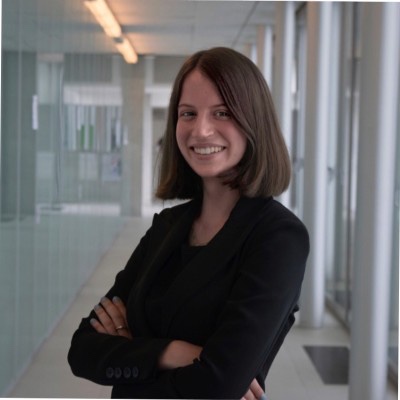
Sara Veronesi
Sara is a Master student in Economics at Bocconi University (Milan). Her research interest lies at the intersection between political, behavioral and development economics. In particular, she is now interested in studying the relationship between the increasing salience of divisive political topics in the public debate and the formation and strengthening of stereotypes of disadvantaged groups in Italy. Previously, she worked on a theoretical model that explained how globalization in specific developing countries contexts contributes to the worsening of the already low economic and social progress of women through their higher employment in the grey economy.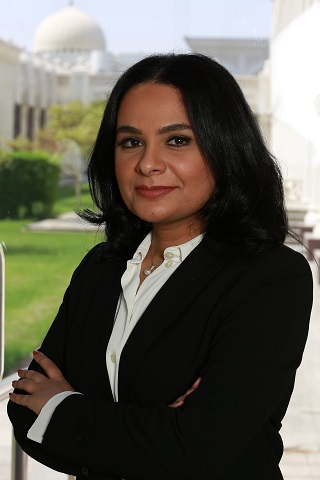
Wafa Khalfan
Wafa Khalfan is an emerging scholar, currently an Assistant Professor of Mass Communication at the University of Sharjah. She completed her doctoral training at the Centre for Cultural Policy Research (CCPR), University of Glasgow (PhD in Media and Cultural Policy). Wafa Khalfan is interested in investigating sociopolitical changes through the lens of media and technology. Her work (in progress) includes research that investigates digital platforms and the influence of technology on journalism. Before joining academia, Wafa Khalfan worked in different roles for more than a decade including the media industry, the public sector and several NGOs in the UAE and the UK.Weng Lam Ao
Weng is a PhD student in Human Sciences at the University of Modena and Reggio Emilia. She completed her master’s degree in regional planning from Cornell University and received her bachelor’s degrees in urban studies and economics from the University of California, Berkeley. Her research interest lies at the intersection of data science and human-centered research to tackle complex and intractable urban challenges, with a focus on the role of sustainable transportation planning and policymaking in addressing economic, environmental, and social equity. Her PhD research is to analyze active travel behavior through leveraging massive, user-generated social media data. Her study aims to examine the changes in the active mobility behavior of different social groups across different time spans in Italy. Her methodological perspective is multidisciplinary, combining transport management, computational social sciences, social psychology, and spatial planning. She hopes to induce positive behavior changes toward adopting active mobility through social media communication.
Yawri Carr
Yawri Carr is a master’s candidate at Technische Universität München. Her current work and research focus on responsible development and deployment of AI. Yawri is has been invited a public speaker in different conferences and spaces worldwide such as the Internet Governance Forum, Global Digital Compact, World Summit on the Information Society and a youth conference from the Ministry of External Affairs of Germany, to discuss topics regarding Internet Governance, Artificial Intelligence, responsible innovation, technology in society, digital rights, etc. She is an intern on Digital Governance and AI at a recognized company in Germany, advising on AI projects. Additionally, she’s a digital youth envoy at the International Telecommunication Union (ITU), where she participated in the first ITU youth summit. During the SICCS she’s interested to learn more and apply methods from computational sciences to her current research interests and to bridge the gap between computer science and social sciences/legal.